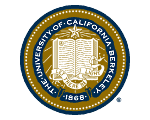Jeremy Lewi
Georgia Tech
Adaptively optimizing neurophysiology experiments for estimating encoding models
Tuesday 21st of August 2007 at 12:30pm
508-20 Evans Hall
A fundamental challenge in neuroscience is understanding how neurons encode sensory information in spike trains. Encoding models are often estimated from simultaneous recordings of the stimulus and neural response. Estimates of encoding models often suffer from an inability to collect enough data to fit complex models. We can improve the estimated models by designing our experiments to provide more information. To collect data efficiently, we should continuallyadapt our experimental design to avoid conducting redundant or uninformative trials. We hope that by conducting more informative experiments we will be able to significantly reduce the number of trials needed to build parametric statistical models of neural encoding.
Application of adaptive methods to neurophysiology has been limited by severe computational challenges. Since most neurons are high dimensional systems, optimizing neurophysiology experiments requires computing high-dimensional integrations and optimizations in real time. Here we present a fast algorithm for choosing the most informative stimulus by maximizing the mutual information between the data and the unknown parameters of a general linear model (GLM) which we want to fit to the neuron's activity. Simulation results show that picking stimuli by maximizing the mutual information can speed up convergence to the optimal values of the parameters by an order of magnitude compared to using random (nonadaptive) stimuli.
Join Email List
You can subscribe to our weekly seminar email list by sending an email to
majordomo@lists.berkeley.edu that contains the words
subscribe redwood in the body of the message.
(Note: The subject line can be arbitrary and will be ignored)

